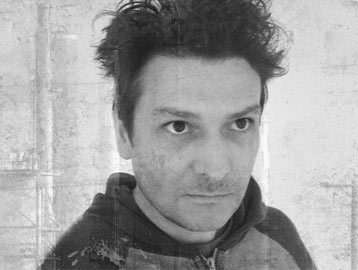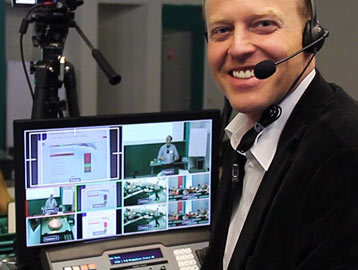February 20, 2018
Legal issues when filming:
Shooting permits, copyright & more

As in some other fields, in filmmaking it pays to get yourself up to speed as early as possible on a complicated matter: law. Failing to do so can cause a lot of problems, especially when it comes to the right to protect your own image and copyright. The right to protect your own image states that it is permissible to present recognizable images of persons only with their express permission. For this reason, the least you have to do is to inform whomever you're filming what the footage will be used for.
Commercial use of images
If you're making a commercial project, such as a DVD or Blu-ray that will be sold, you will need a contract which stipulates the intended use and remuneration. Remuneration doesn't always have to be in money, but can, for example, include free data storage; completely waiving compensation can be legally problematic. The right to protect your own image isn't applicable if the individual isn't recognizable in the picture. For this reason, if you pan across a tribune of cheering fans inside a stadium, you don't have to have each and every one of them sign a release. However, recognition doesn't apply exclusively to persons whose face is visible in the image. If the context makes it clear who is in front of the camera, this can be ruled as recognition. Filming the only police officer in town from behind wouldn't effectively hide his or her identity.
Your own images vs. public spaces
The right to protect your own image applies independently of intended use. If someone asks you to delete a recording of them, you have to comply with this wish, irrespective of what you were planning to do with the footage. Another problem can come up when you're filming inside a stadium – you can't film in spaces that aren't publicly accessible without a shooting permit. In this case, the stadium is a private space, which belongs to the city or a club. In most cases, somewhere on the ticket you will find a legal notice as to whether private recordings are allowed. All commercial recordings have to be announced and inspected in advance. In some countries, only areas that cannot be viewed from public spaces fall under this law. You can, for example, photograph stadium entrances, since these are visible from the street.
Individual and copyright claims from third parties
You can run into problems when filming something protected by copyright.
The main problem: these days, that can be practically anything – even buildings are copyrighted by the architect. It's almost impossible to protect yourself completely when filming outside of the studio: however, a little creativity and diplomacy goes a long way when you're a photographer or film maker.
There's also a really positive aspect, on the flip side. If you're publishing material that you filmed yourself, you're the author.
Therefore, you have the right to protect your material from misuse by third parties. But you must shield yourself before using others' material for a commercial project. This applies especially to background music: performance rights organizations are very vigilant when it comes these matters.
The following applies as a rule: If you're making money from your movie, others want their share, too. For this reason, it is always advisable to secure contracts, release forms and shooting permits in advance. Most contracts can be relatively informal. For a shooting permit, for example, simply write the location, date and intended use, and get a signature. Personal releases shouldn't be too wordy. Keep red tape to a minimum.
If you stick to these tips, then your movie should have no legal problems standing in its way. But if you're still missing the right editing software, then we recommend the latest version of MAGIX Movie Edit Pro to ensure you can produce impressive finished videos.
Related Posts
Movie Studio celebrates its 20th birthday!
Happy Birthday, Movie Studio! We're celebrating 20 years of first class effects, user friendly workflows, and creative approaches.
Artist Interview: Pawel Piatek
Fine art photographer and videographer, Pawel Piatek, talks with us about his art using MAGIX Movie Studio and Video Pro X.
Object tracking in Movie Studio
This article shows you how to distort image content and create title animations using object tracking in Movie Studio.
The man behind the multicam: Eckhard Stoll
Movie Studio is a complete video editing solution that combines professional features with intuitive operation.



